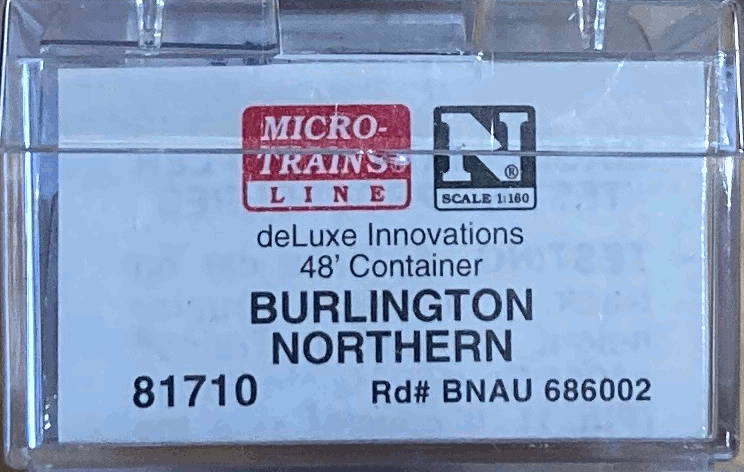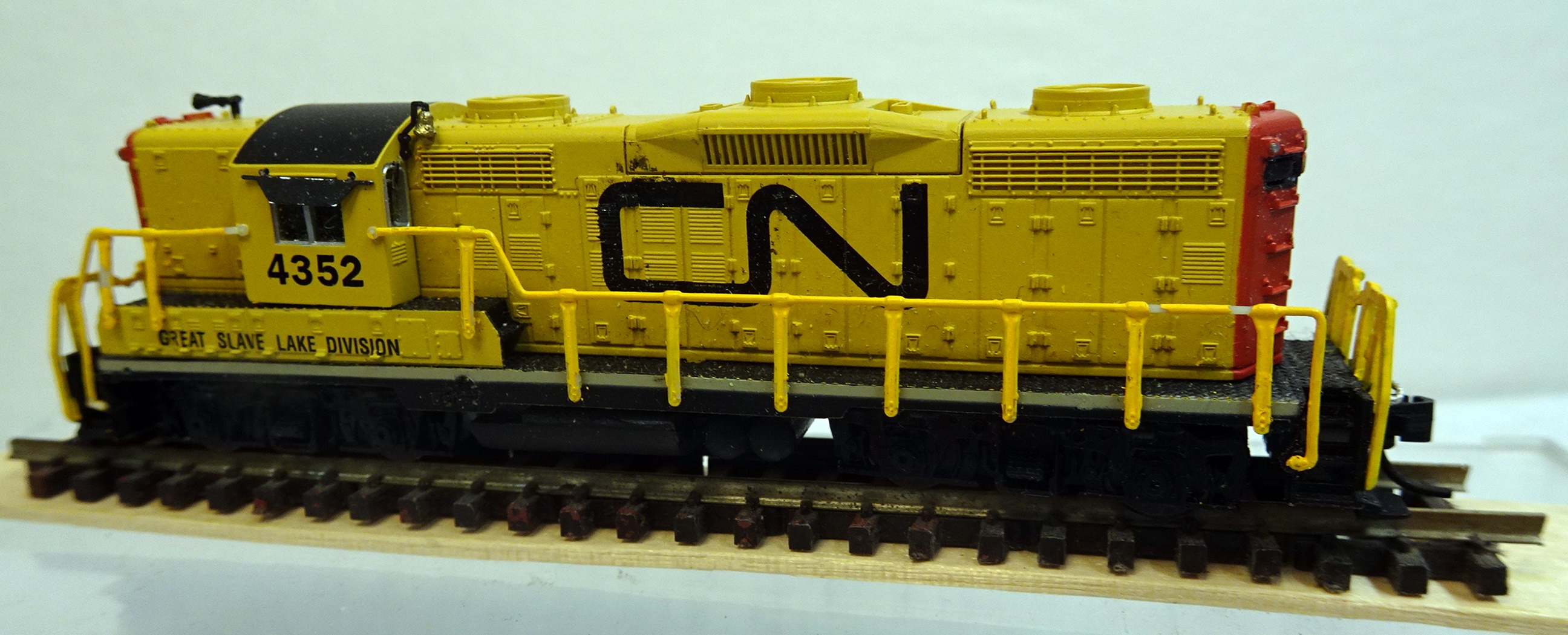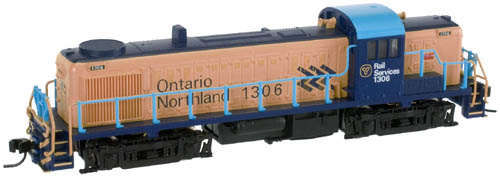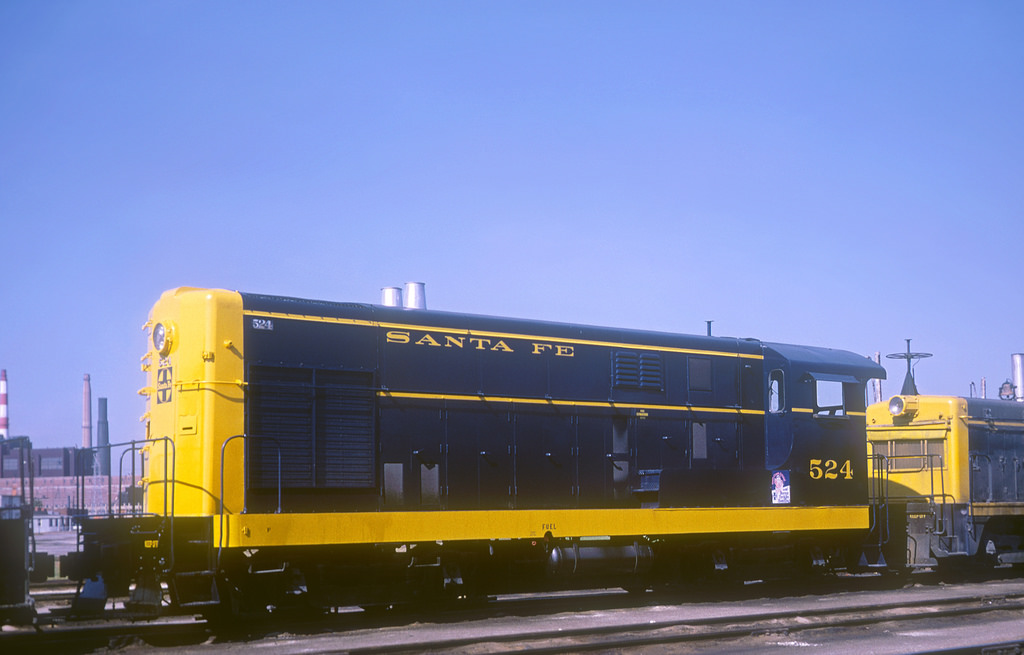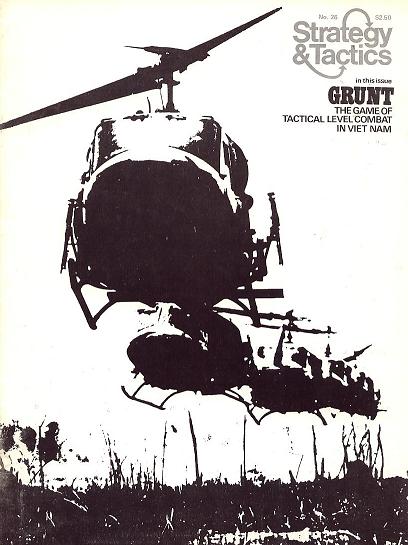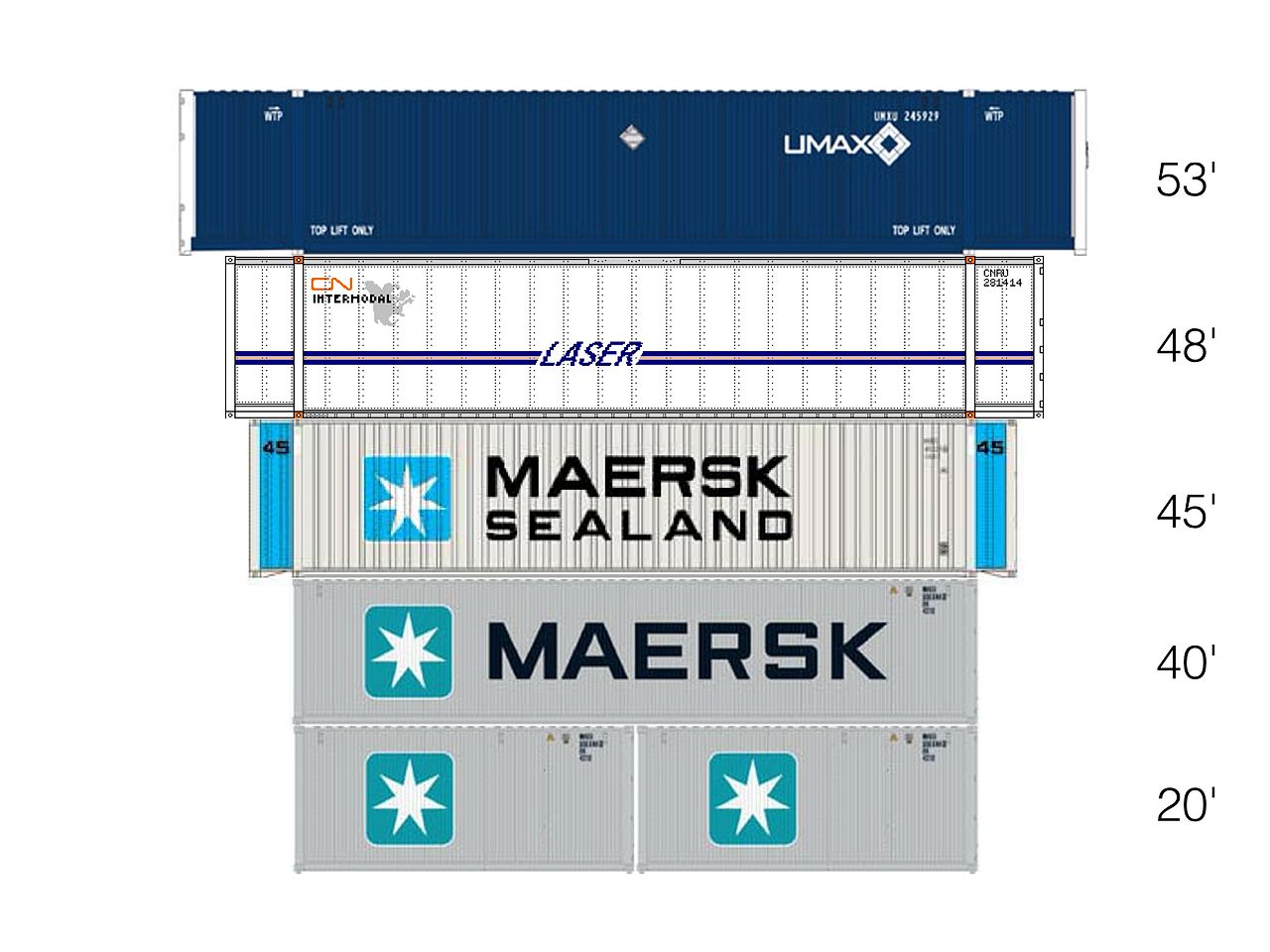Prototype History: An intermodal container is a large standardized shipping container, designed and built for intermodal freight transport, meaning these containers can be used across different modes of transport – from ship to rail to truck – without unloading and reloading their cargo. Intermodal containers are primarily used to store and transport materials and products efficiently and securely in the global containerized intermodal freight transport system, but smaller numbers are in regional use as well. These containers are known under a number of names, such as simply container, cargo or freight container, ISO container, shipping, sea or ocean container, container van or (Conex) box, sea or c can.
The 48-foot (14.63 m) shipping container is a High Cube container in that it is 9 ft 6 in (2.90 m) tall on the exterior. It is 8 ft 6 in (2.59 m) wide which makes it 6 inches (15 cm) wider than ISO-standard containers. This size was introduced by container shipping company APL in 1986, and is used domestically in North America on road and rail, and may be transported on deck by ship. This size being 8 feet (2.44 m) longer and 6 inches (15 cm) wider has 29% more volume capacity than the standard 40-ft High Cube, yet the cost to move it by truck or rail are almost the same.
From Wikipedia
The 48-foot (14.63 m) shipping container is a High Cube container in that it is 9 ft 6 in (2.90 m) tall on the exterior. It is 8 ft 6 in (2.59 m) wide which makes it 6 inches (15 cm) wider than ISO-standard containers. This size was introduced by container shipping company APL in 1986, and is used domestically in North America on road and rail, and may be transported on deck by ship. This size being 8 feet (2.44 m) longer and 6 inches (15 cm) wider has 29% more volume capacity than the standard 40-ft High Cube, yet the cost to move it by truck or rail are almost the same.
From Wikipedia
Road Name History: 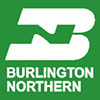 The Burlington Northern Railroad (reporting mark BN) was a United States railroad. It was a product of a March 2, 1970, merger of four major railroads - the Great Northern Railway, Northern Pacific Railway, Spokane, Portland and Seattle Railway and the Chicago, Burlington and Quincy Railroad - as well as a few small jointly owned subsidiaries owned by the four.
The Burlington Northern Railroad (reporting mark BN) was a United States railroad. It was a product of a March 2, 1970, merger of four major railroads - the Great Northern Railway, Northern Pacific Railway, Spokane, Portland and Seattle Railway and the Chicago, Burlington and Quincy Railroad - as well as a few small jointly owned subsidiaries owned by the four.
Burlington Northern operated between 1970 and 1996.
Its historical lineage begins in the earliest days of railroading with the chartering in 1848 of the Chicago and Aurora Railroad, a direct ancestor line of the Chicago, Burlington and Quincy Railroad, which lends Burlington to the names of various merger-produced successors.
Burlington Northern purchased the Atchison, Topeka and Santa Fe Railway on December 31, 1996 to form the Burlington Northern and Santa Fe Railway (later renamed BNSF Railway), which was owned by the Burlington Northern Santa Fe Corporation.*
Read more on Wikipedia.

Burlington Northern operated between 1970 and 1996.
Its historical lineage begins in the earliest days of railroading with the chartering in 1848 of the Chicago and Aurora Railroad, a direct ancestor line of the Chicago, Burlington and Quincy Railroad, which lends Burlington to the names of various merger-produced successors.
Burlington Northern purchased the Atchison, Topeka and Santa Fe Railway on December 31, 1996 to form the Burlington Northern and Santa Fe Railway (later renamed BNSF Railway), which was owned by the Burlington Northern Santa Fe Corporation.*
Read more on Wikipedia.
Brand/Importer Information: Micro-Trains is the brand name used by both Kadee Quality Products and Micro-Trains Line. For a history of the relationship between the brand and the two companies, please consult our Micro-Trains Collector's Guide.
Item created by: nscalemodeler160 on 2016-04-26 23:08:36. Last edited by gdm on 2021-02-08 08:54:50
If you see errors or missing data in this entry, please feel free to log in and edit it. Anyone with a Gmail account can log in instantly.
If you see errors or missing data in this entry, please feel free to log in and edit it. Anyone with a Gmail account can log in instantly.



